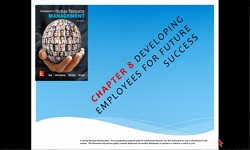사회경제적, 인구학적, 문화적 변화는 사람들이 생애과정에 걸친 시간과 소득의 조직하는 방식을 변화시키고 있다. 대부분의 산업사회는 근로시간 유형의 유연화, 다양화, 개인주의화의 경...
http://chineseinput.net/에서 pinyin(병음)방식으로 중국어를 변환할 수 있습니다.
변환된 중국어를 복사하여 사용하시면 됩니다.
- 中文 을 입력하시려면 zhongwen을 입력하시고 space를누르시면됩니다.
- 北京 을 입력하시려면 beijing을 입력하시고 space를 누르시면 됩니다.
생애과정에 걸친 근로시간 옵션의 경험적 고찰: 제도적 제약 및 기업의 전략
한글로보기https://www.riss.kr/link?id=G3792150
- 저자
-
발행기관
-
-
발행연도
2009년
-
작성언어
Korean
- 주제어
-
자료형태
한국연구재단(NRF)
-
0
상세조회 -
0
다운로드
부가정보
국문 초록 (Abstract)
이러한 배경에서 본 연구는 고용상황, 노동시장 규제, 사회보장제도, 개인의 시간 사용 간의 불균형을 시정하고, 근로시간 유형에 대한 기업의 생산적ㆍ경쟁적 욕구와 근로자의 선호를 만족시키는, 생애과정에 걸친 근로시간 및 소득 옵션의 모색을 목적으로 한다. 본 연구의 이론적 틀은 생애과정 관점이다. 생애과정 관점은 한편으로는 시간과 역사를 핵심개념으로 삼으로며, 다른 한편으로는 특정 생애국면 도는 사건을 분리하지 않고 전체 생애경로에 대한 총체적 입장을 취한다. 이 관점에서 본 연구는 현행 근로시간 옵션과 사회보장제도, 개인 및 가계의 선호, 기업의 인적자원 및 시간관리 간의 상호관계를 고찰한다. 특히 현행 근로시간 옵션 및 배열과 지배적인 사회적ㆍ제도적 틀의 관계를 조명하고, 기업의 인적자원 및 시간관리 전략을 고찰한다.
본 연구의 주요 발견 중 하나는 북부유럽 국가의 경우(소위 사회민주주의 복지국가체계) 보다 통합적이고 일관된, 생애과정에 걸친 시간과 소득의 관리 체계를 마련하고 있다. 이들 국가의 폭 넓은 근로시간 옵션은 근로자들이 큰 소득손실 없이 근로시간을 생애과정 동안 다양한 상황과 헌신에 적응할 수 있는 기회를 제공해준다. 또 다른 발견은 근로자의 욕구를 고려한 근로시간제도를 시행함에 있어 고용주가 중추적 역할을 한다는 것이다. 주어진 제도적 틀 내에서 고용주는 외적으로 고안된 근로시간 옵션의 행사를 용이하게 하거나 저해할 수 있다. 이것은 법적으로 규정된 근로시간 옵션 접근의 최소 조건에 대한 기본 원칙이 마련되지 않을 경우 불평등의 위험이 존재함을 함의하는 것이다.
사회경제적, 인구학적, 문화적 변화는 사람들이 생애과정에 걸친 시간과 소득의 조직하는 방식을 변화시키고 있다. 대부분의 산업사회는 근로시간 유형의 유연화, 다양화, 개인주의화의 경향을 경험하고 있다. 이러한 변화는 새로운 위험과 욕구를 낳고 있는데, 이들 위험과 욕구는 현행 사회보장제도로 관리할 수 없는 것들이다. 현행 사회보장제도는 세 단계로 표준화된 생애과정과 정상적 근로관계를 가정하고 있고, 이와 함께 시간의 분배 역시 이 정상성의 가정에 맞추어져 있다. 새로운 사회경제적, 인구학적, 문화적 맥락은 생애과정에 걸친 일과 생활의 양립을 요구하고 있는 반면, 현행 체제에서 노동시장 이탈은, 그것이 어떤 종류이든, 매우 위험한 시도이다. 물론, 현행 체제에서 다양한 형태의 근로시간 옵션이 제도적ㆍ기업차원에서 제공되고는 있다. 그러나 대부분의 경우 그것은 단편적 조치로 머물고 있으며, 사회보장과 시간 분배의 개혁을 결합하는 통합 모델의 한 부분으로 설계되어 있지 않다.
이러한 배경에서 본 연구는 고용상황, 노동시장 규제, 사회보장제도, 개인의 시간 사용 간의 불균형을 시정하고, 근로시간 유형에 대한 기업의 생산적ㆍ경쟁적 욕구와 근로자의 선호를 만족시키는, 생애과정에 걸친 근로시간 및 소득 옵션의 모색을 목적으로 한다. 본 연구의 이론적 틀은 생애과정 관점이다. 생애과정 관점은 한편으로는 시간과 역사를 핵심개념으로 삼으로며, 다른 한편으로는 특정 생애국면 도는 사건을 분리하지 않고 전체 생애경로에 대한 총체적 입장을 취한다. 이 관점에서 본 연구는 현행 근로시간 옵션과 사회보장제도, 개인 및 가계의 선호, 기업의 인적자원 및 시간관리 간의 상호관계를 고찰한다. 특히 현행 근로시간 옵션 및 배열과 지배적인 사회적ㆍ제도적 틀의 관계를 조명하고, 기업의 인적자원 및 시간관리 전략을 고찰한다.
본 연구의 주요 발견 중 하나는 북부유럽 국가의 경우(소위 사회민주주의 복지국가체계) 보다 통합적이고 일관된, 생애과정에 걸친 시간과 소득의 관리 체계를 마련하고 있다. 이들 국가의 폭 넓은 근로시간 옵션은 근로자들이 큰 소득손실 없이 근로시간을 생애과정 동안 다양한 상황과 헌신에 적응할 수 있는 기회를 제공해준다. 또 다른 발견은 근로자의 욕구를 고려한 근로시간제도를 시행함에 있어 고용주가 중추적 역할을 한다는 것이다. 주어진 제도적 틀 내에서 고용주는 외적으로 고안된 근로시간 옵션의 행사를 용이하게 하거나 저해할 수 있다. 이것은 법적으로 규정된 근로시간 옵션 접근의 최소 조건에 대한 기본 원칙이 마련되지 않을 경우 불평등의 위험이 존재함을 함의하는 것이다.
다국어 초록 (Multilingual Abstract)
Against this background this study aims at investigation of working time options and income profile over the life course, which provide the remedies for the imbalance between employment situation, labour market regulations, social protection system and individual's use of time and reconcile the company's competitive needs and the employee's preferences regarding working time patterns. This study theoretically bases on the life course perspective. Taking a life course perspective means to acknowledge the crucial role of time and history, and to take a holistic view of the entire life path rather than viewing specific events and phases separately. From this perspective, particular attention was paid to the interplay between current working time options and arrangement over the life course and the prevailing social protection regimes, individual and household preferences and companies' human resource and time management. It will be highlighted the relation between current working time options and arrangements, on the one hand, and the prevailing societal and institutional framework on the other hand. Furthermore, this study analysed company's human resource and working time management strategies.
One of the main findings of this study is that the Nordic countries provide integrated and coherent system of time and income management over the life course. The large range of individual working time options in these countries gives numerous opportunities for employees to adapt their working time to various situations and commitments over the life course without large income loss. Another finding is that employers have a major role to play in the implementation of working time arrangements that take employee's need into account. In the context of a substantial institutional framework, they may facilitate or hinder the take-up of such externally designed working time options. This implies that there is a major risk of inequality if there are no basic principles defining minimum conditions of access to working time options defined at the statutory level that provide rights to individuals.
Currently socio-economic, demographic and cultural changes are modifying the way in which people organize their time and income over the life course. Most industrial societies have experienced a marked trend towards flexibilisation, diversification an...
Currently socio-economic, demographic and cultural changes are modifying the way in which people organize their time and income over the life course. Most industrial societies have experienced a marked trend towards flexibilisation, diversification and individualisation of working time patterns. Such changes have created new social risks and needs, which cannot be managed by current social security system. This bases on the premise of the three-phased standard life course and the normal labour relationship, with the distribution of time is tuned to this normality premise. While new socioeconomic, demographic and cultural contexts require the balance between work and life over the life course, a exist from labour market under current system remains a very risky undertaking. Indeed, various working time options are provided on institutional and company's level. However most of the current working time and income options are still piecemeal measure and not part of an integrated model combining reforms of social protection and allocation of time.
Against this background this study aims at investigation of working time options and income profile over the life course, which provide the remedies for the imbalance between employment situation, labour market regulations, social protection system and individual's use of time and reconcile the company's competitive needs and the employee's preferences regarding working time patterns. This study theoretically bases on the life course perspective. Taking a life course perspective means to acknowledge the crucial role of time and history, and to take a holistic view of the entire life path rather than viewing specific events and phases separately. From this perspective, particular attention was paid to the interplay between current working time options and arrangement over the life course and the prevailing social protection regimes, individual and household preferences and companies' human resource and time management. It will be highlighted the relation between current working time options and arrangements, on the one hand, and the prevailing societal and institutional framework on the other hand. Furthermore, this study analysed company's human resource and working time management strategies.
One of the main findings of this study is that the Nordic countries provide integrated and coherent system of time and income management over the life course. The large range of individual working time options in these countries gives numerous opportunities for employees to adapt their working time to various situations and commitments over the life course without large income loss. Another finding is that employers have a major role to play in the implementation of working time arrangements that take employee's need into account. In the context of a substantial institutional framework, they may facilitate or hinder the take-up of such externally designed working time options. This implies that there is a major risk of inequality if there are no basic principles defining minimum conditions of access to working time options defined at the statutory level that provide rights to individuals.











